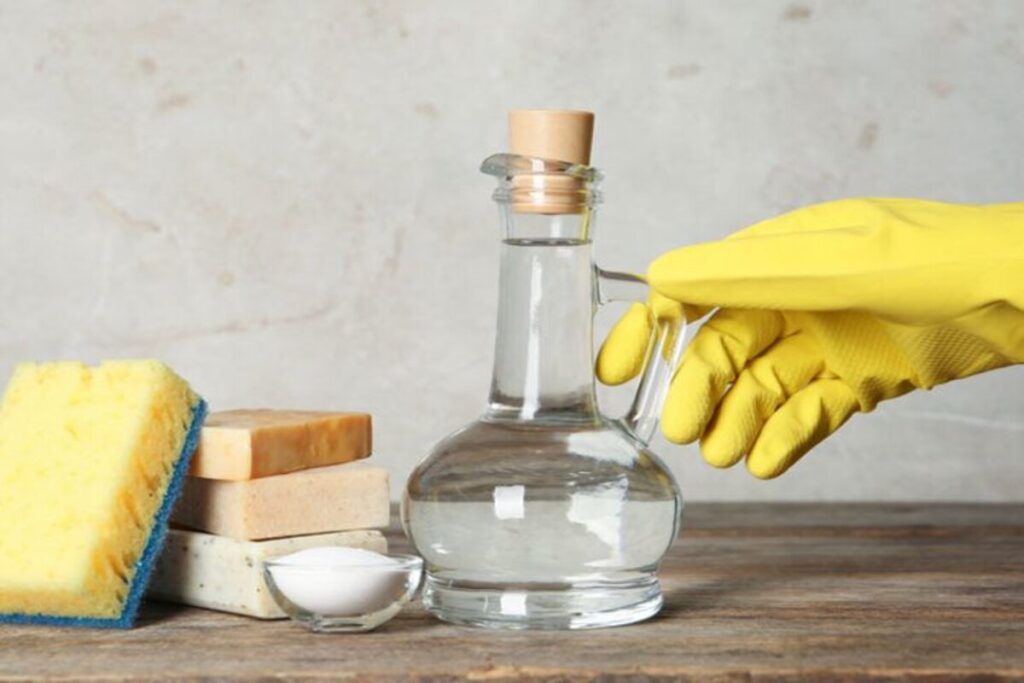You should avoid cleaning with vinegar for the eight items mentioned in this piece. Many people resort to vinegar in search of eco-friendly products and cleaning agents to keep their homes in pristine condition.
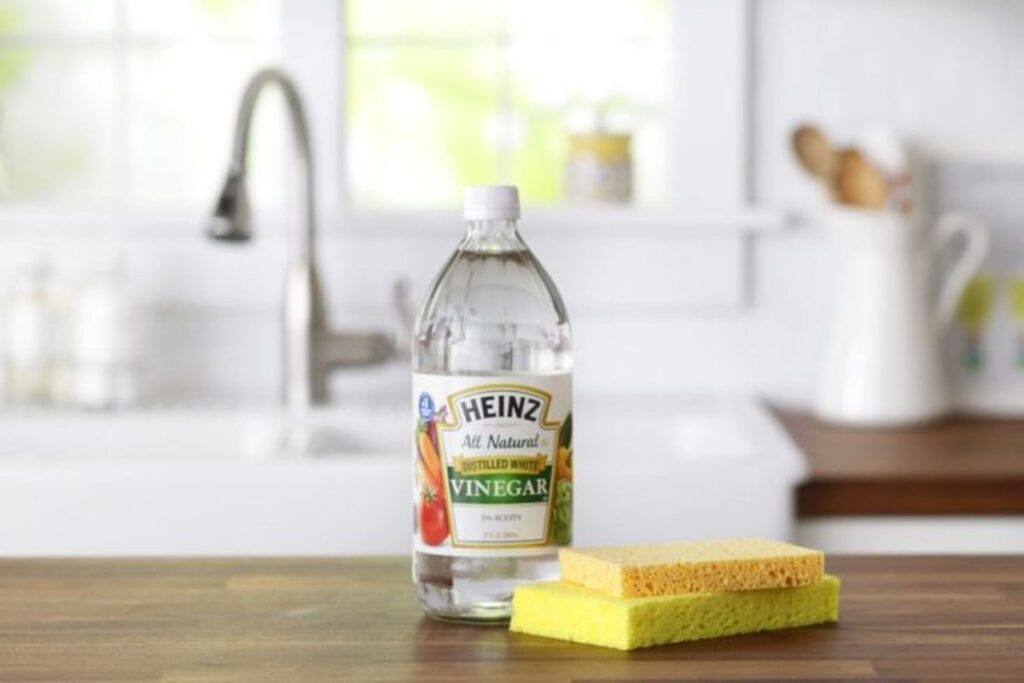
However, there are objects and surfaces we should avoid cleaning with vinegar. Vinegar’s acidity makes it effective in disinfecting solutions and removing stains.
Despite vinegar’s eco-friendly and stain-removal properties, the following are items and surfaces to avoid cleaning with the fermented product.
1. Screen of Electronic Gadgets
Your smartphone, TV screen, and touchscreen personal computers are susceptible to smudges and fingerprints. Vinegar is one of many eco-friendly cleaning agents around, so you may think it is the best bet for cleaning the screen of your electronics. Better luck next time being right.
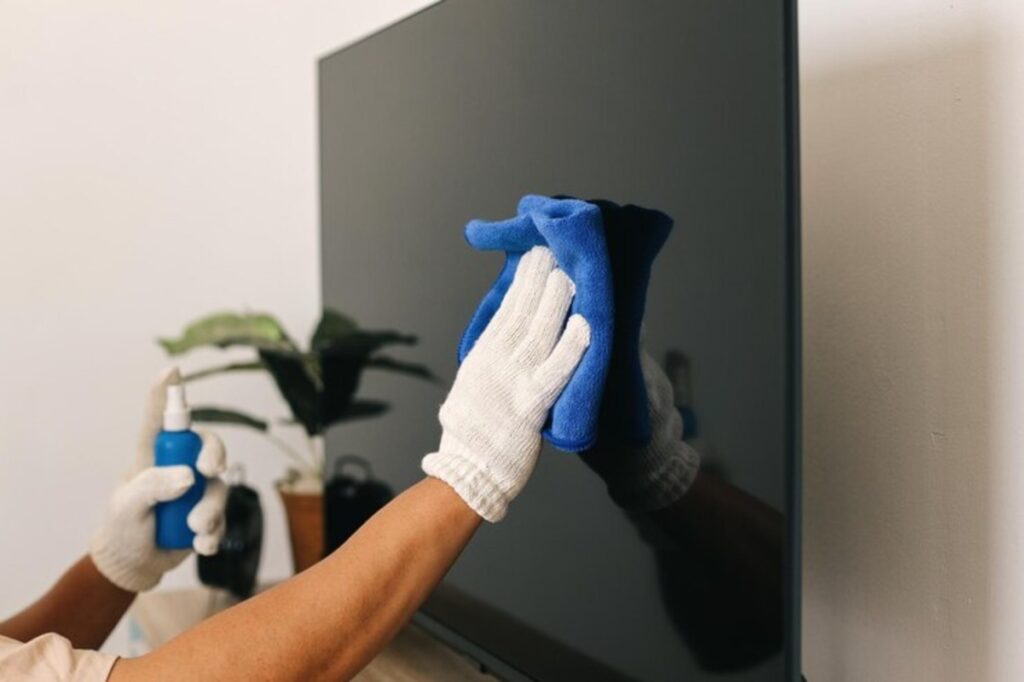
When your electronic screen looks messy, you should wipe the surface clean with a dry, lint-free cloth.
ALSO READ: The Sweet Benefits of Apple Cider Vinegar
2. Hardwood Floors
Some hardwood floor manufacturers include a caveat about cleaning agents in their warranty clause. Many such manufacturers explicitly advise hardwood floor owners to avoid cleaning with vinegar, as the warranty will not cover damages from the cleaning agent.
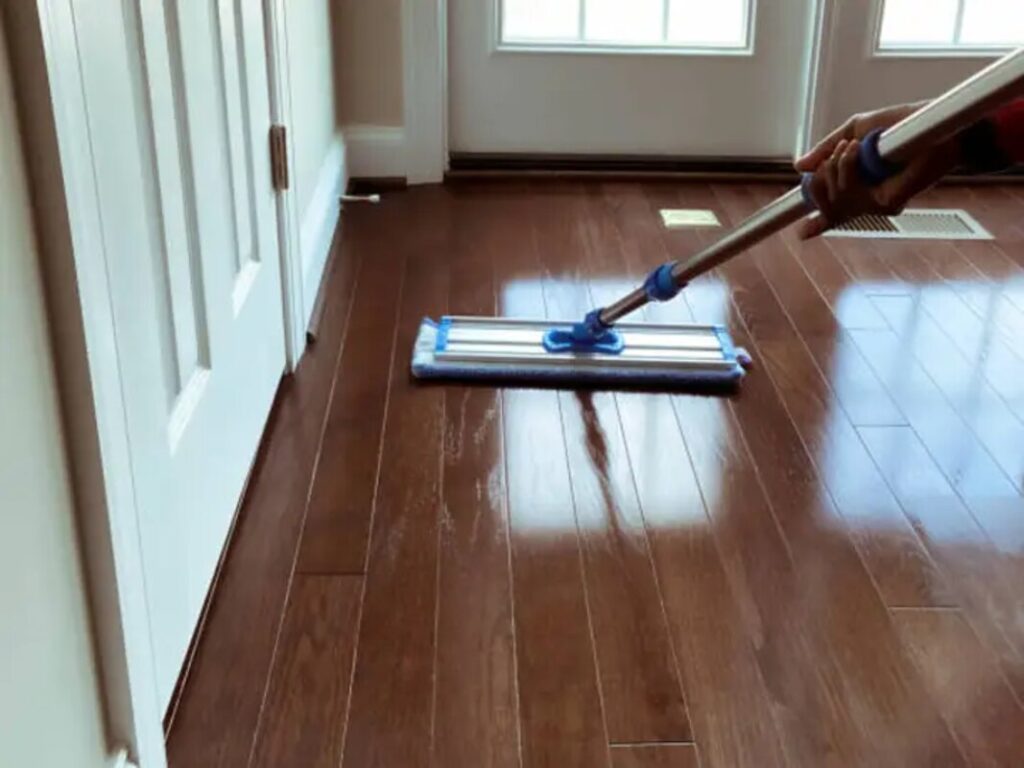
So, to avoid incurring extra expenses for hardwood floor maintenance, use waxy cleaners instead. Use cleaning agents developed for hardwood surfaces if faced with a stubborn stain. Hardwood floors also deserve some furniture care despite your walking all over them.
3. Small Kitchen Appliances
We are not flogging a dead horse by asking you to avoid cleaning kitchen appliances with vinegar. This advice is essential for small kitchen appliances like toasters, coffee makers, and blenders.
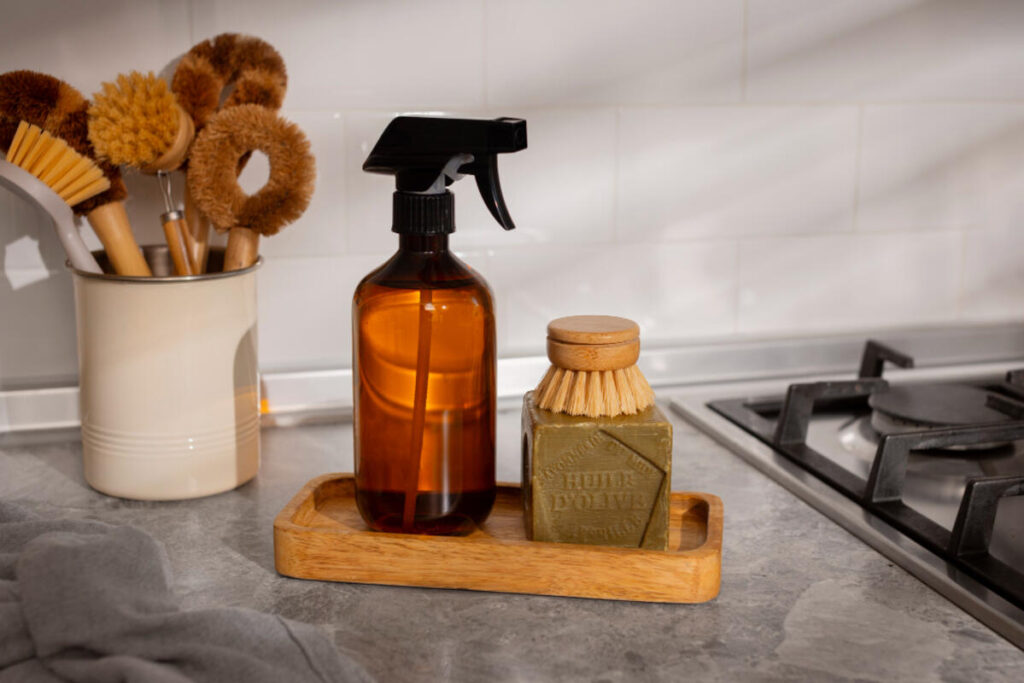
To avoid corroding the metallic parts of these appliances during kitchen cleaning, use mild all-purpose disinfecting solutions, water, and a microfibre towel. This is also preferable for cooking utensils like cast iron skillets.
4. Knives
After leaving a piece of your knife set in prolonged disuse, you suddenly notice rust growing around its blade. Your first cue may be to use vinegar for stain removal. Vinegar seldom stops at metallic surface cleaning; it may end up corroding the metal itself.
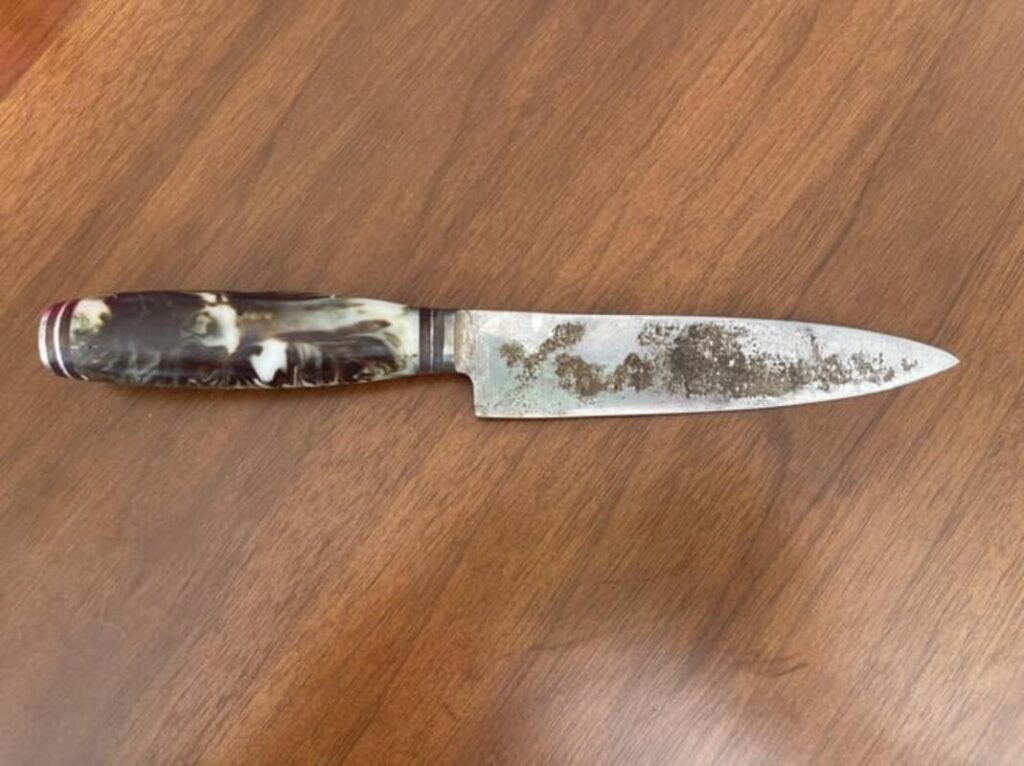
So, for kitchen cleaning that involves metals, some preferable vinegar alternatives are detergent, warm water, and a scrubbing sponge.
5. Tile Grout
The grout of tiles is often a haven for mold, particularly in damp areas of the house. While vinegar rids tile grout of these stains conveniently, it erodes this portion of your floor over time.
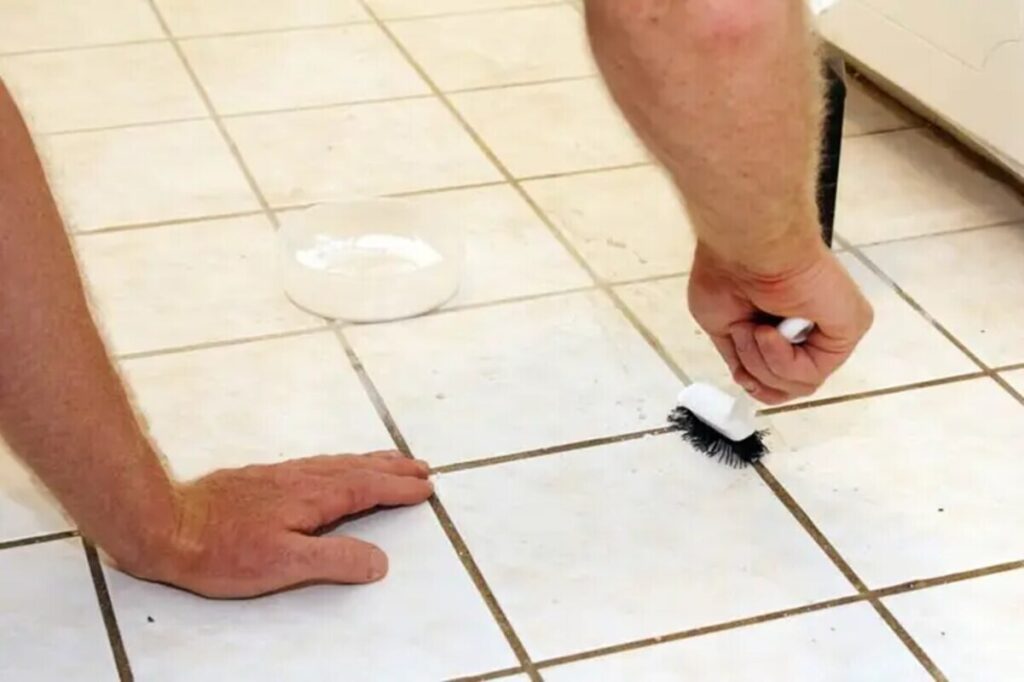
So, the next time you notice stains accumulating on your tile grout, consider vinegar alternatives. For one, there are cleaning solutions designed specifically for that purpose. Indeed, even regular household cleaners and a good grout brush can easily remove stains.
6. Clothes Iron
Because vinegar is terrific for stain removal solutions and as a household cleaner, some folks think it is wise to use it to flush the tank of steam irons. Unknown to many, steam irons often have a coated chamber that could easily degrade due to vinegar’s acidic properties.
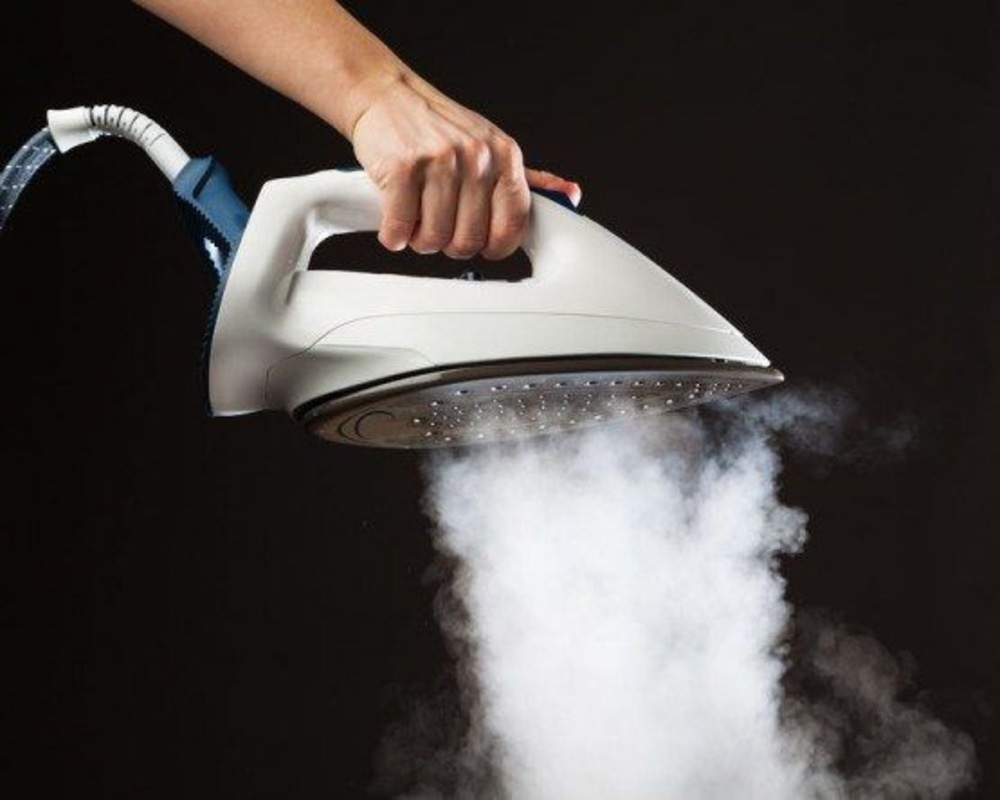
Rather than subjecting your steam iron to such harsh treatments, go through the operational manual to see if it has a self-cleaning capability. If so, use that feature instead.
7. Dishwasher/Washing Machines
There are a lot of hacks flying around about the wonders that vinegar can do when used in dishwashers and washing machines. Well, don’t take such advice at face value because most of these claims are largely exaggerated. In addition, studies have discovered that using vinegar alone weakens the rubber components of these machines.
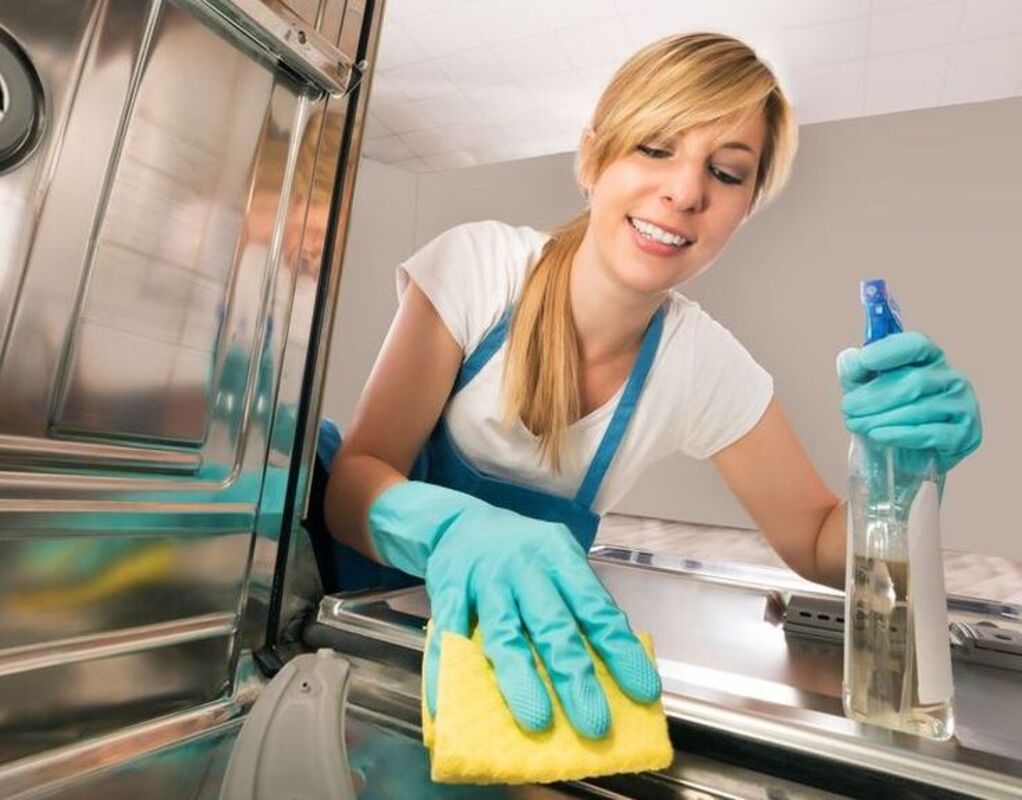
To help your dishwasher and washing machine enjoy long years of functionality, use deodorizers and cleaners, like chlorine bleach, designed for use in such equipment.
ALSO READ: Want a Sparkling kitchen? Check Out These 10 Vinegar Hacks
8. Stone Countertops
Vinegar, or solutions containing it, is great for wiping down high-touch glass and plastic surfaces. However, it has destructive potential when used on stone countertops. Kitchen countertops made from travertine and marble are variants of limestone, and the acidity of vinegar causes them to dull and etch over time.
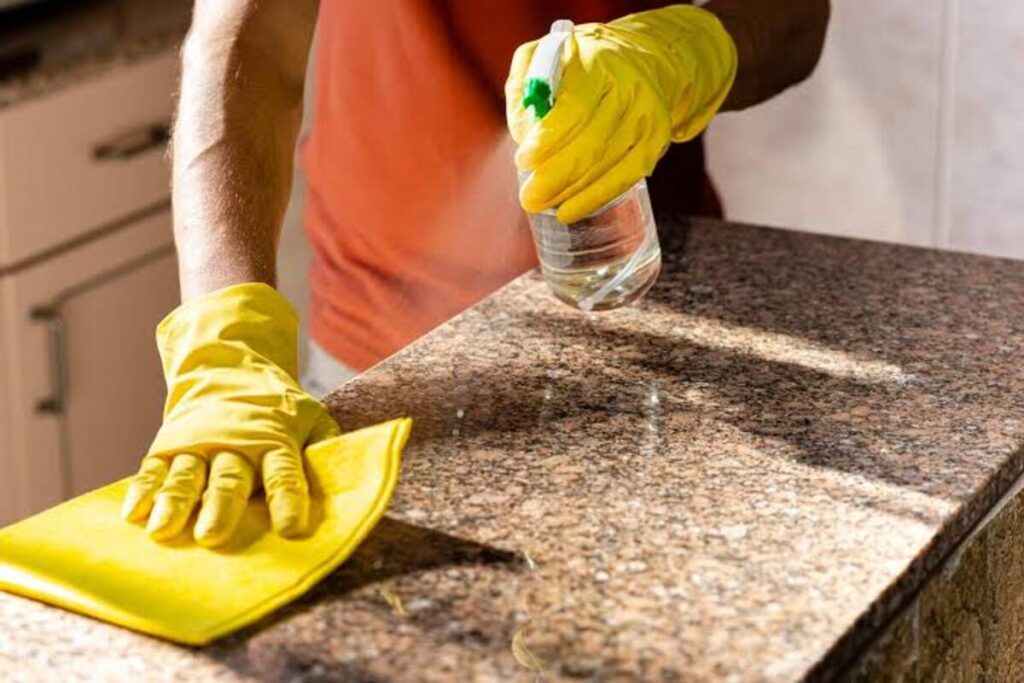
To avoid the loss of shine in stone countertops, use mild all-purpose cleaning agents for surface cleaning. Applying the cleaning agent with a microfiber towel will renew the luster of your stone countertops.
